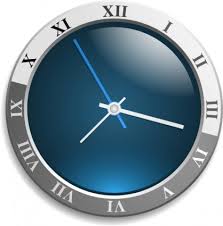Grammerly is one of those useful tools that can sort out the basic errors, enabling you to improve your writing and learn as you go. It can also help with emails and online writing, where paying a pro editor isn't cost effective.
Why consider a tool like Grammarly?
As indie authors, we are 100% responsible for producing books that are not only readable and entertaining/informative but also ones that are mistake-free. When readers are distracted by misspellings and grammatical errors their reading experience is going to suffer. And that means your reputation as an author is going to suffer as well.
The Kindle also has a function for readers to report typos and if you get too many of these in a book, you're going to get a quality notification.
For this reason, we always want to use professional editors and proofreaders when we're publishing our books. Nothing can replace the editing and proofreading of a human being, especially one who specializes in your genre.
However, the messier a manuscript is when you send it to a professional for proofreading or editing, the more it's going to cost you to improve and fix.
Grammarly is an automated proofreader, and a grammar and plagiarism checker.
It scans your text and makes suggestions about where changes should or could be made. It even monitors word usage and will comment on sentence length (watching for those pesky run-on sentences that happen when we're writing fast). You can either use it in your web browser or install the Microsoft Office add-on. And you can even tell Grammarly whether you're writing in US or UK English so it will know how to support you.
As with most apps and plug-ins these days, there a free version and a paid one. With the free version, you can log-in and paste your text into a Grammarly document, wait a few seconds, and then see the feedback it's giving you about the possible mistakes in your text. When I ran this article through Grammarly's editor, even though Scrivener had already corrected my spelling in a few instances, Grammarly found several punctuation mistakes I hadn't caught, as well as a case where I'd typed ‘with' instead of ‘will'. Impressive!
Here are six ways Grammarly can improve your writing.
(1) You can learn from it and make fewer mistakes next time
Obviously, Grammarly is a tool for checking your grammar, spelling, and punctuation, something that both Word and Scrivener already do. One difference with Grammarly is that it will tell you why it's making the suggestion. This enables the writer to make an informed decision and perhaps even learn a bit along the way. As well, there is a free, online handbook about English, sorted by topics like style and mechanics, where you'll find articles about everything from how to use an apostrophe to the correct form of abbreviations.
(2) Discover your writer tic, or the words you use too often
All writers are guilty of using the same word too frequently.
And yet, as the author of the book or story, we're often so close to the manuscript, and we've read it so many times, that we can't see this. Grammarly will alert you to this type of problem. It will also allow you to see definitions of words and suggest synonyms if you want to change the word you're using.
In this way, it's like a thesaurus combined with a spelling and grammar checker.
(3) Learn to break up your sentences
“Bestsellers are about shorter, cleaner sentences, without unneeded words.” The Bestseller Code, Jodie Archer & Matthew L. Jockers
Data analysis of bestselling books indicates that shorter sentences characterize bestsellers, but we all know how hard that can be to do in practice.
Grammarly will comment on sentence length when it detects long or run-on sentences. This is another great feature for when we've read a manuscript so many times we can't see it any longer. Grammarly can act like a second pair of eyes, pointing out problems we wouldn't see otherwise.
(4) Take your manuscript one step closer to perfection
We all know how valuable our editors and proofreaders are. As I mentioned in the intro to this article, nothing can replace the skill and human touch of a professional editor/proofreader. However, if with Grammarly's help you've made your manuscript as clean (i.e., error-free) as possible, your editor is going to have an easier time catching every remaining correction. In a way, Grammarly can support your editor to take the manuscript even closer to perfection.
(5) Plagiarism checker
If you're a non-fiction writer, you'll love this next feature.
You can click a button and Grammarly will compare your text to over 8 billion web pages, checking for duplication. This is an amazing feature to prevent a potentially embarrassing mistake if you've accidentally copied text from an article on the web to refer to in your own writing, but have forgotten to include a citation.
Even if you're writing fiction, it's possible to add research material into a manuscript with the intention of putting it into your own words, and then forgetting. Grammarly will prevent any such accidentally oversights from happening.
(6) Use it for social media and email as well as your manuscript
Grammarly also provides a free plug-in for Chrome or Safari (although not for Scrivener, sadly). The plug-in will monitor your posts on social media sites like Facebook and Twitter, ensuring you don't make any spelling and grammar mistakes. This can take the worry out of presenting a polished image to your readers and fans even when you're rushing to send out a quick Tweet.
So if you're feeling a little under-confident in your grammar, check out Grammarly here for your next piece of writing.


 RSS Feed
RSS Feed
